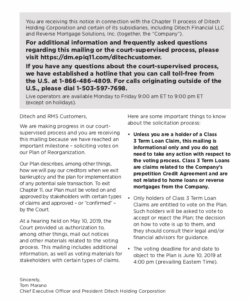Here’s why the government is granting a $50 million dollar boost to FHA’s Mutual Mortage Insurance Fund
The White House budget submitted to Congress in June signaled a strong performance of the Home Equity Conversion Mortgage program. HUD’s summary of loan levels predicted the HECM portion of FHA’s portfolio was expected to generate a negative credit subsidy of -2.54% in Fiscal year 2022. Translated that means it’s expected that incoming receipts will exceed claims paid that year. According to a June report in Reverse Mortgage Daily fiscal year 2021 which we just concluded is also expected to generate a negative subsidy of -2.39%.
[read more]
While these short-term improvements in the HECM’s cash flow are a positive sign, the value of the HECM portion of FHA’s MMI fund is the source of continued concern. Case in point, the wild fluctuation of the HECM program’s standalone capital ratios. While the capital ratio of traditional FHA loans climbed steadily in the years 2016-2020, the HECM portion varied widely each fiscal year from a negative ratio of 11.81% in 2016, 18.3% in 2017, 18.83 in 2019, 9.22% in 2019, and .78% in 2020. Those numbers are highly sensitive to home price values and interest rates- both of which the housing agencies have no control. That means should home values slip the program’s valuation could easily go back into the red quickly.
One thing HUD and FHA are striving to control the costs of is HECM servicing- the chief reason the Biden administration boosted FHA’s administrative contract budget by $50 million for the fiscal year 2022. In its budget review, HUD states, “The primary cause of the increase is the growing expense of servicing the Secretary-held HECM portfolio.” A portfolio the agency says is growing while being challenged with Covid-19 and natural disaster claims.
The servicing of HECM loans has long been an area of concern and dispute among industry participants. One of the challenges is that HECMs are not assigned to FHA’s service contractor until the loan balance reaches 98%. Another sticking point is the question of how efficiently FHA’s HECM loan servicer is dealing with property vacancies and the sale of homes to recoup expenses.
In July 2018 then FHA Commissioner Brian Montgomery in a media call pointed to a potential source of HECM losses. “We are digging deep in the portfolio to find out of the problem is on the front end or the back end. My sense is that it’s more on the back end in terms of the losses we are experiencing. Part of ‘triaging’ is [determining] why that is happening”, said Montgomery. Adding, “looking at the back end of the process, once the loans are assigned to HUD is the area we are focused on. I am not sure further [principal limit] cuts are going to fix that problem.”
Proposals to fix the ‘back-end problems’ ranged from contracting with a new servicer, expanding the Cash for Keys program to the HECM for exiting homeowners, and allowing existing servicers of HECMs not in assignment to continue servicing the loan after the loan balance reaches 98% of the original maximum claim amount.
While such reforms have not come to fruition, some anticipated a change of the loan servicer for HECM loans in assignment as FHA sought new contracts in late 2020. On October 5th HUD’s decision was announced. “NOVAD Management Consulting (NOVAD) will remain responsible for servicing Assigned Secretary-Held Home Equity Conversion Mortgages (HECM) and HECM Subordinate Mortgages,” said HUD in a statement. Novad has served as FHA’s HECM servicer since 2014. While some argued for a new servicer to address increasing expenses, others like the former HUD Deputy Secretary of HUD Brian Montgomery argued keeping the existing servicer may ultimately reduce costs for the program.
[/read]









